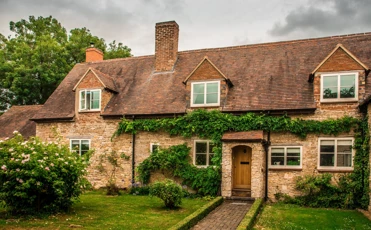One of the many challenges faced by divorcing couples is the division of assets, and this includes the family home. Often, one spouse will keep the property, while the other will look for a new place to live. For the individual retaining ownership of the home, remortgaging can be a practical step towards financial stability and a fresh start.
Remortgaging is the process of replacing an existing mortgage with a new one, typically with different terms. When a couple divorces, the partner who keeps the family home may need to buy out the other partner’s share of the property's value. This is where remortgaging comes into play, as it allows the homeowner to access the necessary funds required to pay off the former partner's share.
Whether you’re divorcing and you’re coming to the end of your current mortgage deal, or are looking at remortgaging as a way of dividing your assets, there are a number of key points to consider.
Assess your finances
Before you think about remortgaging, you’ll need to conduct an in-depth assessment of your finances, as you’ll need a clear idea of what you can afford now that you’re switching from a joint to a solo income. This will allow you to evaluate the feasibility of remortgaging. A good starting point is to work out your new income and how your monthly outgoings and expenses factor into this.
Get your property valued
To determine what your new mortgage amount would look like, you’ll need to get your property valued. This will help establish its current market value, and the portion that needs to be financed through the new mortgage.
Explore your options
A mortgage adviser will research a variety of mortgage products to find a deal that’s tailored to your new financial circumstances - whether that’s transferring to a new product with your current lender, or switching to a different lender. Your solicitor will be able to advise you on more complex concerns regarding costs and other related matters.
If you’re struggling to meet your mortgage payments in the midst of a divorce, the first port of call should be to speak to your lender. They’ll be able to look at a range of options in order for you to proceed with your mortgage agreement. A solicitor will help navigate the legal complexities surrounding divorce proceedings, so any queries of this nature should be directed through them.
Contact us
If you’re divorcing and looking to remortgage, get in touch with our team of advisers. They will be able to talk you through your options to find a mortgage deal that works for your financial circumstances.
Important information
Your home may be repossessed if you do not keep up repayments on your mortgage.
There may be a fee for mortgage advice. The actual amount you pay will depend on your circumstances. The fee is up to 1% but a typical fee is 0.3% of the amount borrowed.




